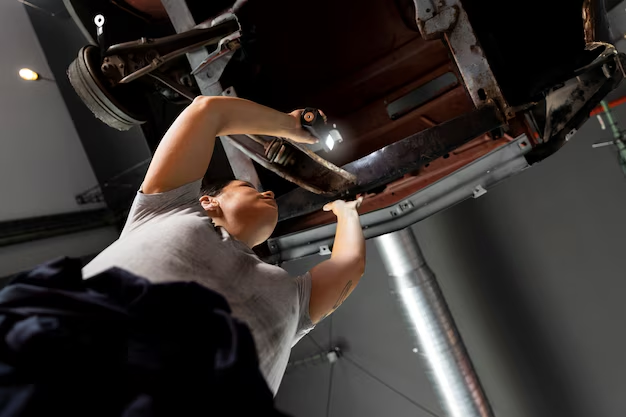Why Is My Refrigerator Leaking Water? Here’s What You Need to Know
Imagine waking up, heading to the kitchen for your morning coffee, only to step into a puddle of water in front of your refrigerator. As inconvenient as it is, a leaking refrigerator is a common household issue that can often be resolved without professional help. In this comprehensive guide, we’ll explore why your refrigerator might be leaking water, delve into related subtopics, and provide practical tips to help you address these issues effectively. Let’s dive right in to keep your kitchen dry and your mind worry-free.
Understanding the Water Leak: Common Causes
1. Clogged Defrost Drain
One of the most frequent culprits of a leaking refrigerator is a clogged defrost drain. Over time, debris, food particles, or ice can obstruct the drain hose, causing water to back up and eventually leak out of your refrigerator.
- Fixing It: You can often resolve this by flushing the drain hose with warm water or using a mild detergent to dissolve any blockage. A long wire or a specialized drain snake can assist in clearing stubborn clogs.
2. Drain Pan Issues
At the bottom of your refrigerator, there’s usually a drain pan designed to collect condensation from the evaporator coils. If this pan is cracked, misaligned, or overflowing, it might lead to water pooling around your fridge.
- Fixing It: Inspect the drain pan for damage. Ensure it sits correctly under the refrigerator, and replace it if necessary.
3. Improper Leveling
Surprisingly, the position of your refrigerator can affect its efficiency and potential for leaks. If your fridge isn’t level, water could drip out instead of evaporating as intended.
- Fixing It: Use a spirit level to ensure your refrigerator is perfectly horizontal. Adjust the legs or use leveling shims to achieve balance.
4. Broken Water Inlet Valve
For refrigerators with an ice maker or water dispenser, a malfunctioning water inlet valve might be responsible for leaks. If this valve doesn’t close properly or it's damaged, water can seep out and puddle at the base.
- Fixing It: Turn off the water supply and inspect the valve for cracks or leaks. Replacing a faulty valve might require an experienced hand if you're not familiar with plumbing.
5. Faulty Door Seals (Gaskets)
The gasket is responsible for forming a seal when the refrigerator door closes. If compromised, it could result in condensation and eventually water leaks.
- Fixing It: Clean the gaskets with warm, soapy water and ensure they’re aligned correctly. If damaged, consider replacing them with new seals.
Related Subtopics to Explore
Energy Efficiency and Environmental Impact
A leaking refrigerator might be more than a nuisance; it could be affecting energy performance, escalating utility bills, or contributing to environmental waste. Refrigerators rely on airtight seals to maintain efficiency, as leaks compel the system to work harder, thereby using more energy.
- Maintaining Efficiency: Regularly check and clean your refrigerator's coils, inspect door seals, and ensure it’s positioned correctly for optimal airflow.
When to Call a Professional
While many leaks are manageable by following DIY fixes, some scenarios necessitate professional involvement, particularly if:
- The leak is extensive and doesn’t improve after your attempts.
- Electrical components are involved or compromised.
- You suspect a malfunction beyond a simple clog or seal issue.
Preventative Maintenance Tips
To forestall leaks, consider incorporating these preventive practices into your routine:
- Regular Cleaning: Schedule routine cleanings of your fridge's defrost drain and coils.
- Inspection: Check seals for wear and tear periodically.
- Professional Servicing: Schedule an annual inspection, especially if your fridge is an older model.
Practical Consumer Tips & Key Takeaways
🔎 Quick Summary of Key Points
- Inspect Common Areas: Frequently check the defrost drain, drain pan, and door seals.
- Level Your Fridge: Ensure it's not tilting to prevent unnecessary water pooling.
- Maintenance: Regular cleaning and inspections will prevent most issues.
- Professional Help: Don’t hesitate to call for expert assistance if the problem persists.
- Energy Efficiency: Keeping your fridge in good shape saves on energy costs and benefits the environment.
A Few More Tips for Refrigerator Longevity
Optimal Temperature Settings
Setting your fridge and freezer to the correct temperatures is crucial. The refrigerator compartment should be kept at around 37-40°F (3-4°C), while the freezer should be at 0°F (-18°C).
- Tip: Many modern refrigerators come with digital displays for easy adjustments.
Avoid Overpacking
An overstuffed fridge hinders airflow, possibly leading to ice build-up and water leaks.
- Tip: Keep your fridge organized, allowing air to circulate freely for efficient cooling and reduced condensation.
Mindful Product Placement
Storing liquids and foods strategically can minimize risk. Provide ample space for liquids to avoid spilling during handling.
- Tip: Use airtight containers and keep liquids on lower shelves to prevent leaks from food items.
Energy Star Ratings
If you’re considering a replacement, look for models with a high Energy Star rating for superior efficiency and reduced environmental footprints.
- Tip: Although the initial cost may be higher, energy savings and rebates can make them economical in the long run.
In conclusion, understanding why your refrigerator might be leaking water and knowing how to tackle the issue can save you time, frustration, and potentially expensive repair bills. By maintaining an informed approach and following some simple preventive steps, you can ensure your refrigerator runs smoothly and efficiently, keeping your food fresh and your kitchen dry.

